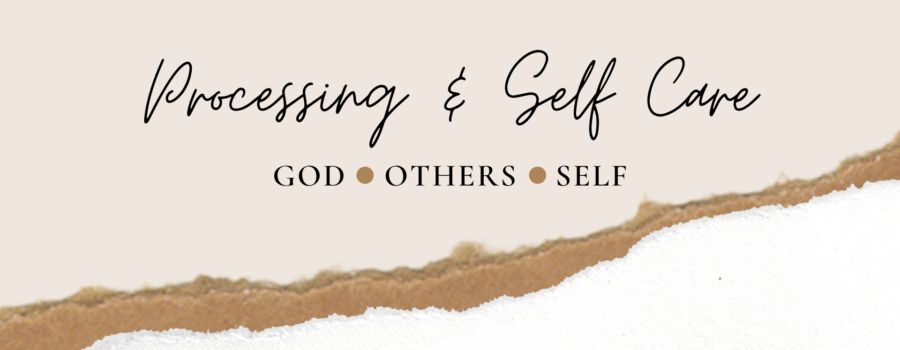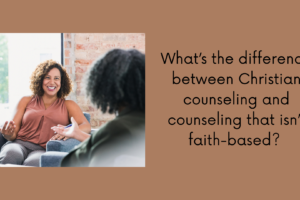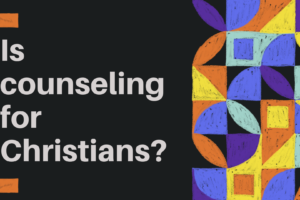To love yourself is to take care of yourself, to pay attention to your needs, feelings, and thoughts. To know yourself in and out. To know your God-given value. And one thing that we need as we embark on the journey to self-love is vulnerability. Author Brené Brown says that vulnerability is one of the bravest things we can have— letting others see and know us deeply. As human beings, we need this level of openness with some people in our lives.
It is often this honesty and vulnerability that leads to healing and genuine connections. Being vulnerable with someone could mean sharing your feelings or thoughts about something. It could mean setting boundaries and being assertive or allowing your true self to be seen. It could mean sharing your story or your dreams and greatest desires. In counseling we often talk about the need for a client to process an experience. To process means to examine the meaning of memories, emotions, and experiences. It is about making meaning to move forward or learn from something that has happened in our life. We are not always processing something when we choose to be vulnerable, but we are always vulnerable when we choose to process.
There is great risk when we expose the hidden things to others— risk of judgment, betrayal, and rejection. Processing feels even harder because we are picking it apart and showing someone pieces we are not even aware of or places we want left unseen. Processing goes beyond simply sharing one’s experiences. People sometimes struggle to know how to do this in a safe and effective way, so many do not do it at all. And that can hurt us more than the potential rejection or betrayal.
I have learned the power of processing, but I have also learned that I don’t need to dig deep like this with everyone. Because not all people are safe. I follow a simple formula to gauge what to share, when to share it, and with whom to share it.
Go to God first.
I know this sounds way too cliché, but follow me for a minute. God is trustworthy. In fact, no one is perfectly trustworthy except God. His presence is safe, and he welcomes our openness and honesty. He wants us to tell Him how we feel and what we think, to ask Him questions when we don’t always understand the meaning of our experiences. He wants us to seek him for direction and clarity. He wants us to process with Him. I do this by praying out loud or in my journal and filling my mind with the truth of his word. When I pray, I am brutally honest with Him. When I am able to tell him my fears and my hurt and my anger and my sadness, I open the door for Him to listen and comfort and provide truth about the situation I can’t always see. Before I ever share what is going in my life with another person, I share it with God. I know he can handle my mess, and better, he knows what to do with it. If after a while of consistent honesty in prayer (sometimes a few days, sometimes a few weeks or months) and I still do not have resolve in a situation, then I will share the story with someone else.
Go to a close friend or trusted loved one.
Not everyone needs to know your deep thoughts, feelings, and struggles. Your social media friends do not need to know about these things in your life. The key here is trust. Can you fully trust a person? Can you trust them to listen without judgment, to help you make meaning of your experience without making the situation worse? To gently challenge when needed and encourage when needed, too? If not, then you should not try to share about or process through personal issues with them. A safe person could be a wise and close friend, a spouse, a close family member, or pastor. When processing, you can share with them the story of your situation, how you feel about it, what you think and believe about it, and what you think it means. You can also welcome their feedback about it, to see if they see something you might have missed. They can help you move through it and come out on the other side. After these conversations, if there is still more left unresolved or untouched, then it may be time to seek a professional counselor.
Go to therapy.
Professional counselors are trained to help their clients process through their stories. They know where to take you when you feel lost, and how to move through it. They work hard to develop a trusting relationship, and they help you see new perspectives and work toward healing from hard experiences. Though the counsel of God trumps all, counselors can be a gentle guide that can make all the difference when dealing with difficult circumstances. Maybe it is time for you to seek out a counselor for some unresolved hurt, past trauma, or grief. Maybe it is time to stop fighting through it alone.
Though it is risky to be vulnerable and process painful emotions and experiences, it is worth the risk. Healing sits on the other side, so let’s be brave and walk through it. Together.






Recent Comments